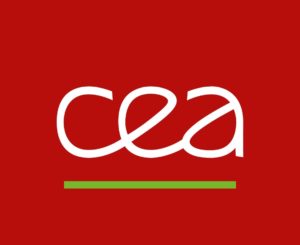Pilot Line - 8
Increasing the production of bio-based nano composites
- Application: Consumer goods, Energy & Transport, Packaging
- Development: Formulation

Current status
CEA – POUDr’innov platform (PL 8) is specialised in the development of thermoplastics compounds from bio-resources or from end-of-life polymers.
The bio-based polymers activities consist in the :
- Identification of commercially available bio-based polymers
- Comparison of bio-based and oil-sourced polymers in terms of: Mechanical properties, durability …
- Substitution of oil-sourced polymers with bio-based polymers in manufacturing processes
- Formulation of bio-based polymers with bio-based fillers (vegetal fibres) for properties improvement
- Formulation of bio-based polymers with nano-fillers for properties improvement
Nevertheless, on this last point, primary development of thermoplastics composites containing nano-fillers, usually involve the preparation of a masterbatch by solvent casting under laboratory hood. This process can help to manage some nanosafety issues, but induce limitations in terms of production rate… Also, the handling of nanomaterials for the elaboration of nano-enabled polymer composites requires a specific know-how in terms of nanosafety (personal protective equipment, filtrated air conditioning), which is the main limitation in potential developments by interested SMEs.
Actual maximum capacity is ~1 kg/day of nano-enabled compounds.
Challenge
The use of a direct and continuous melt mixing process, using twin-screw extruders for example, is more suitable for manufacturing nanocomposites and can be easily upscaled for a high production rate and a lower cost.
After upgrading the pilot line with specific nanosafety equipments, CEA-POUD might be able to produce up to 10 kg/h of nano-enabled bioplastics by extrusion, in the form of (i) pellets for injection-moulding, or (ii) extruded films for packaging or printed electronics applications
Further development
Development of new nano-enabled bio-based thermoplastic composites, with a high production rate.
Benefits for companies and SME’s
CEA-POUD will be able to support SMEs and companies interested in the development of nanocomposites with no experience in nanomaterials handling at the industrial scale, from the materials fine-tuning (few kg) up to pilot scale (50 kg) for materials qualification, without any preliminary nanosafety investment in their plants. This support will enable to SMEs or larger companies to have feedback on the global process of materials production, the safety requirements to manage the risks with nano handling for the operators and an access to the OPEX and CAPEX values for such manufacturing line. Also, industrials interested in printed electronics from nano-enabled materials, will find a unique environment which will allow them to deal with the nano-safety issue during the development of new materials, up to development of 2D substrates for preliminary printing test, in coordination with the CEA-PICTIC pilot line. The excellent complementarity of both PL will allow SMEs and companies to significantly reduce their development time of printed nano-materials.